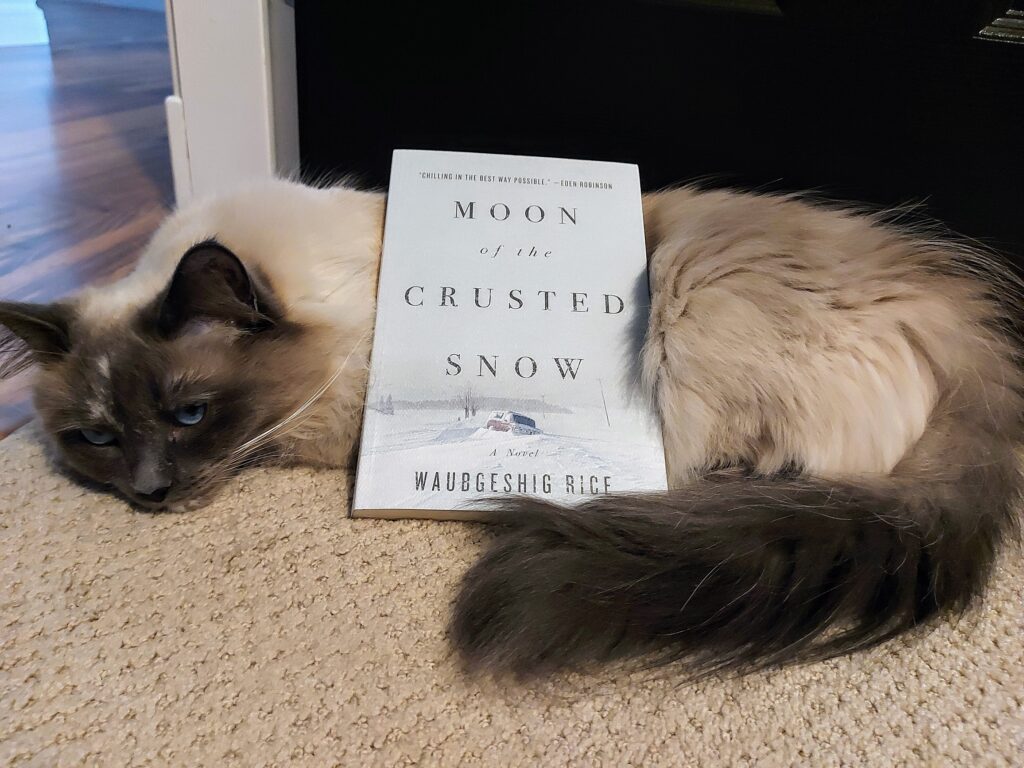Moon of the Crusted Snow by Waubgeshig Rice

I came across Moon of the Crusted Snow while browsing the Indigo website. It is essentially a story about the apocalypse, which attracted my attention because I love stories about the apocalypse. Weird, I know. But I like to get ideas for what to do or not to do when shit hits the fan. Moon of the Crusted Snow is a somewhat interesting story, but I feel like it ended before it really got started and overall the novel was just okay.
Moon of the Crusted Snow is set in a small, isolated Anishinaabe community in northern Ontario. It opens in late fall when the novel’s main protagonist, Evan Whitesky, is hunting a moose to build up his family’s supply of meat for the winter before the snow starts falling thick and fast, cutting the community off from the rest of the world to the south.
Within days of his last hunt of the season, Evan’s community loses power and the internet and phones stop working. This is nothing unusual, as unfortunately his community is used to losing power. It did not even have reliable internet coverage until it was brought in for the white workers of a nearby hydroelectric dam. But what is unusual is that the power is still out after a week or more, and with the snow already blocking the road out of town, no one can just hop into a car a drive south to find out what is going on. It is not long before the people in Evan’s community start to panic about running out of food and diesel power before the end of winter.
Like Rumaan Alam’s Leave the World Behind, Moon of the Crusted Snow does not provide an explanation for why the power goes out and why the world as we currently know it has ended. It is a psychological novel about how a community attempts to rally together to survive in the face of uncertainty. Some people, like Evan, are better equipped to survive such an extreme situation. Evan wants to live as his Anishinaabe ancestors did and be reliant on the land. But there are others, like Evan’s younger brother, who have no interest in this way of life, who don’t know what to do with themselves except drink and who need to rely on the preparation of others for survival.
Evan’s community would have probably fared alright if a white man had not just shown up out of nowhere expecting the Anishinaabe to let him into their community. Evan is immediately suspicious of this man, and for good reason. White people have a way of ruining things for non-white people. I understand that stories usually need some sort of conflict, but the rest of the novel becomes reduced to a battle of wills between Evan and this white man, who is a stereotypical monstrous white person, and I found this to be the least interesting part of the story.